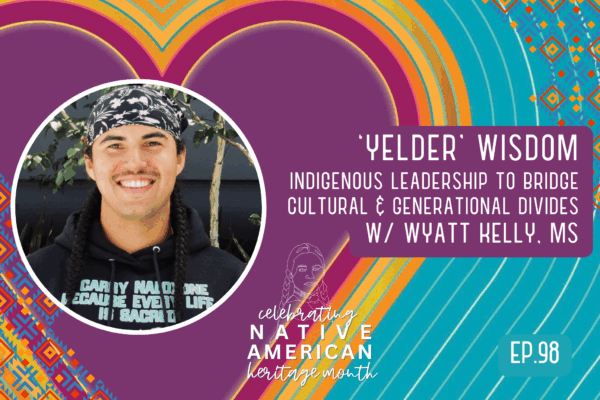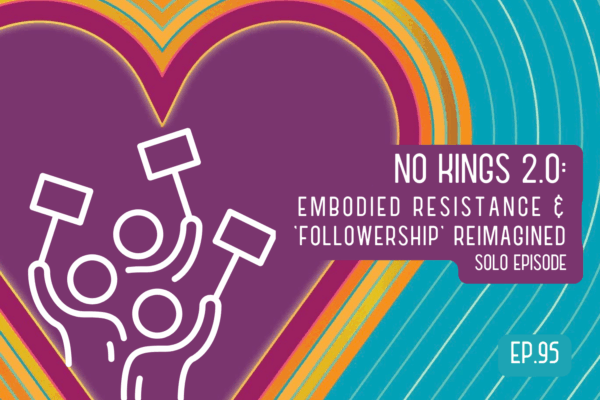
Ep.97 – The Flesh of Leadership: Embodied Resistance for Collective Justice | Lesa Clark, PhD
Is embodiment a tool in the ongoing fight for collective justice? In the intro, I share how the wellness world shaped my understanding of embodiment (why it matters and what it is for) and share how two decades of navel-gazing conditioned me to be complacent in the face of injustice. I catch us up on some current events, then share a riveting interview with Dr. Lesa Clark, a strategic leader in intercultural engagement and equity. Lesa shares personal stories from her family’s history and how they shaped a lifelong commitment to social justice. She and I discuss embodied leadership, the importance of integrity (vs. performativity) in DEI initiatives, and the need for collective action and courage to confront oppressive systems. Lesa speaks to the complex interplay between leadership and followership, inviting us to break free from groupthink and to embody values that foster societal change. The discussion concludes with reflections on resilience, allyship, and the pursuit of justice.
Dr. Lesa C. Clark is a strategic leader with expertise in intercultural engagement, leadership development, and equity. With over 20 years of experience, she empowers organizations and individuals to cultivate inclusive cultures that prioritize diversity and facilitate authentic cross-cultural engagement. As the former Executive Director for Intercultural Relations and Women’s and Gender Equity Centers at Old Dominion University, Dr. Clark spearheaded collaborative campus-wide DEI initiatives. She developed and instructed courses centered on cultural humility, connecting this framework to cultural competency and emotional intelligence. She recently completed a three-year research project that foregrounds the leadership of Black birth workers, a designation frequently overlooked in both academic literature and professional settings. Dr. Lesa Clark demonstrates how culturally grounded ancestral practices challenge and dismantle harmful practices, advancing more responsive and equitable maternal healthcare. Additionally, her work explores the leadership of Black women in Kenya, South Africa, and the United States, offering a comprehensive, global, and historical analysis of intersectional leadership and advocacy. Dr. Clark has advanced intersectional leadership paradigms that promote inclusion, respect, and equity, envisioning and enabling the development of systems and communities in which all members are empowered to flourish, thrive, and lead effectively.
November 5, 2025
Referenced In This Episode:










